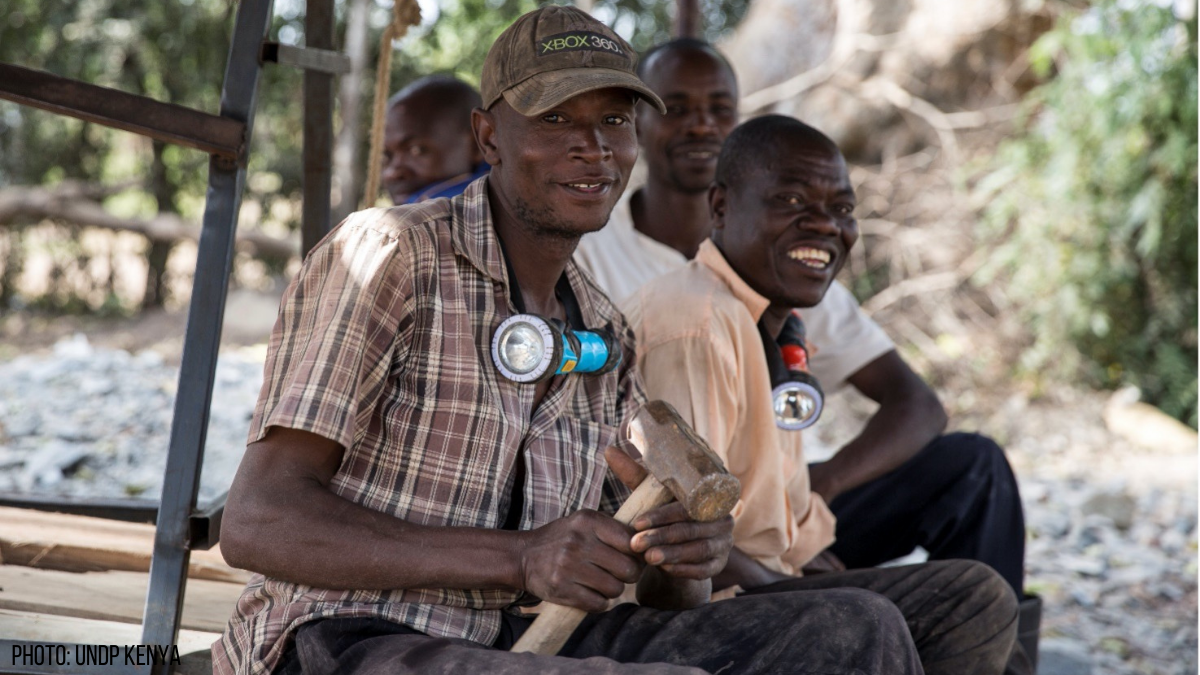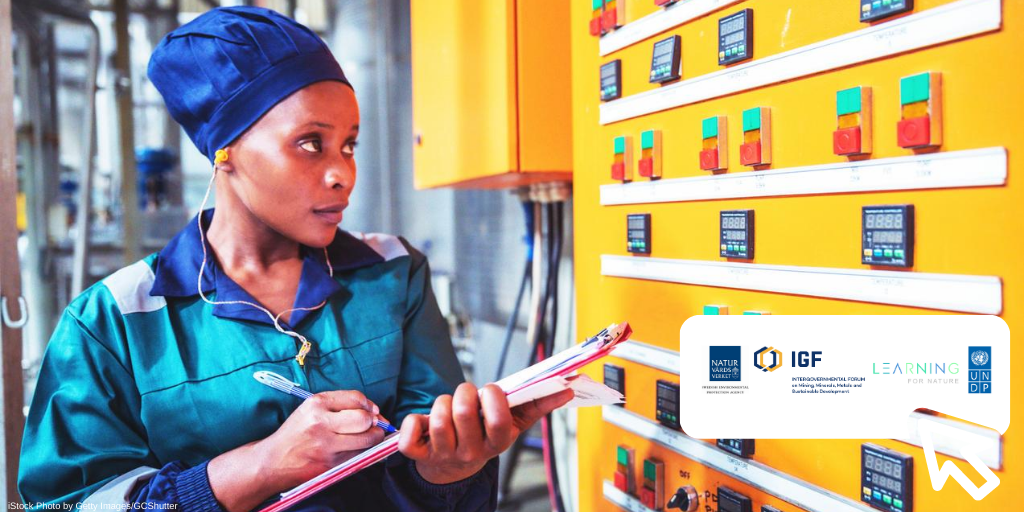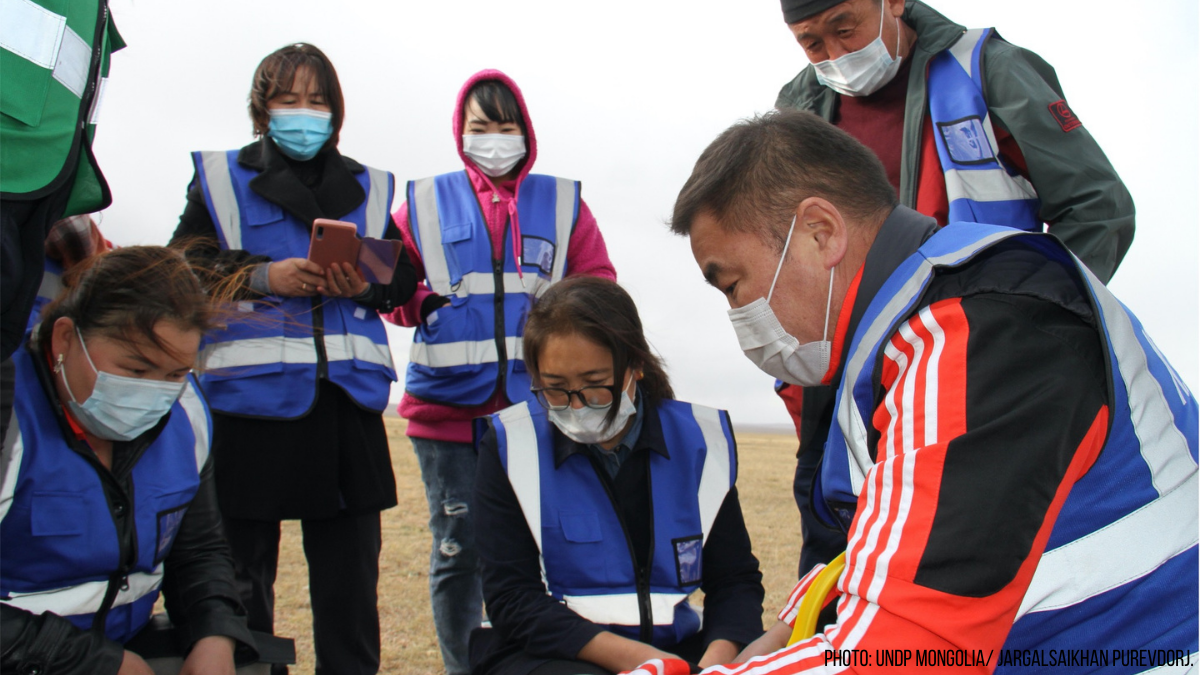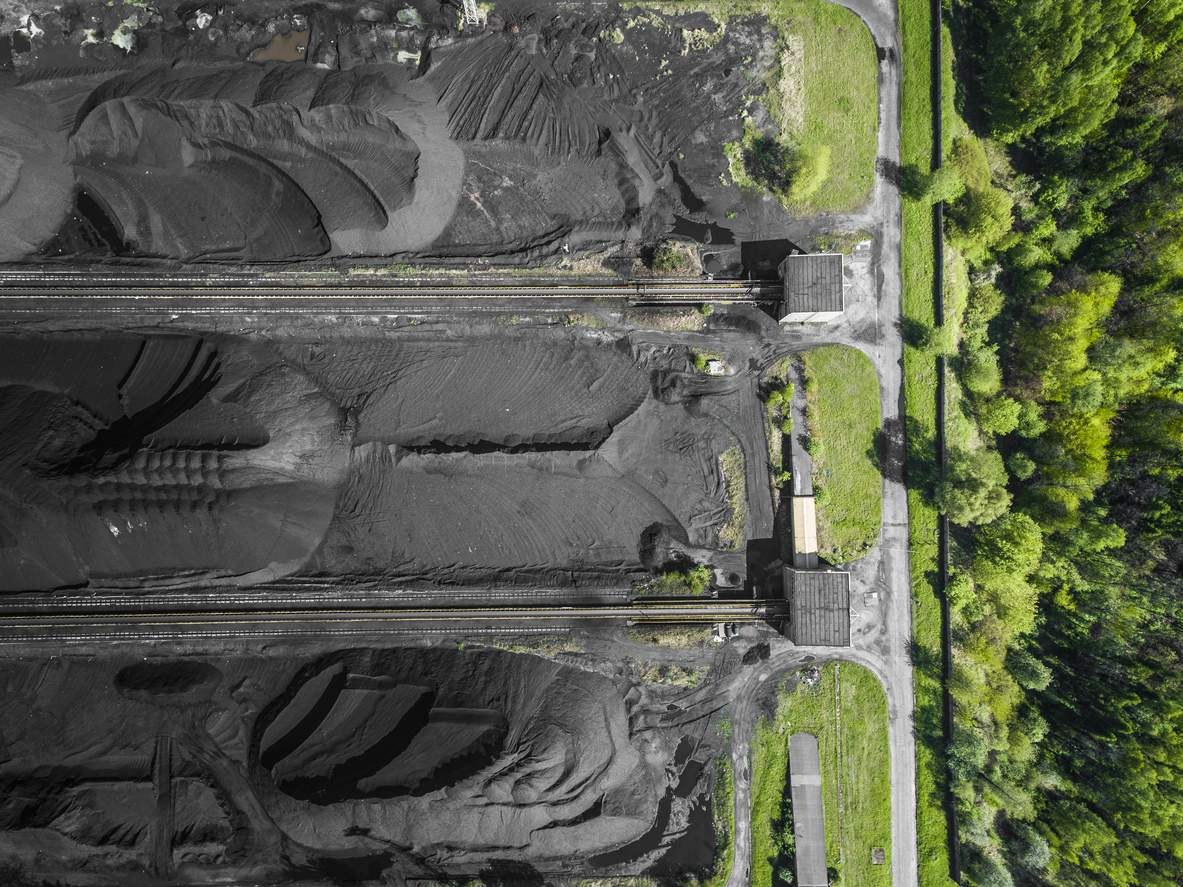Newsletter from the Environmental Governance Programme (EGP) for Sustainable Natural Resource Management.
EGP is a joint initiative of the Swedish Environmental Protection Agency (SEPA) and the United Nations Development Programme (UNDP). The EGP supports countries to integrate environment and human rights into the governance of the mining sector.
ARTISANAL AND SMALL-SCALE MINING (ASM):
Kenya Story of Change: Promoting Artisanal Mining Committees
The EGP Kenya Team has captured learning and inspiration from ongoing work to support the establishment of Artisanal Mining Committees (AMCs) in Kenya’s resource-rich counties of Migori, Kakamega, Taita-Taveta and Turkana.
"The Mining Act of 2016 paved the way for government and mining stakeholders to address outstanding challenges in the ASM sector, including environmental degradation, land related conflicts, accidents, and injuries in mining operations, as well as human rights issues related to the artisanal mining value chain" - Washington Ayiemba, EGP Focal Point in UNDP Kenya.
>>READ THE STORY OF CHANGE

GENDER EQUALITY IN MINING:
Register for the Gender & Mining Governance Self-Paced Course!
The self-paced course on #GenderAndMining features four modules available in English, French, and Spanish. The course builds on the Massive Open Online Courses (MOOCs) on gender and mining governance organized in 2020 and 2021 with the Intergovernmental Forum on Mining, Minerals, Metals and Sustainable Development (IGF) and UNDP's Learning for Nature Programme.
The course will help EGP Country Teams, partners and mining governance decision makers to:
- Understand and evaluate the impact of mining projects on communities, with a particular emphasis on projects’ impact on women;
- Assess the importance and benefits of women’s active participation and engagement in mining projects for communities, companies and governments;
- Outline measures to effectively eliminate gender-based violence in mining operations and communities impacted by mining; and
- Understand how investment in gender in mining governance can lead to stable and resilient communities.
"This was a very detailed course on gender dynamics in the mining industry. It has equipped us with relevant knowledge and skills on how to enhance the participation of women in the mining sector" - Monica Gichuhi, Eastern Africa Representative, Association of Women in Mining in Africa; MOOC participant.
>>REGISTER HERE

LEARNING:
Learning Hub Report: 3rd EGP Learning Focal Points Meeting
Held on February 15, 2022, our latest Learning Focal Points meeting featured experiences in integrating the EGP Learning Ecosystem into country programming, as well as reflections on the use of the Stories of Change template to capture the perspectives of mining governance stakeholders and country partners.
>>READ THE REPORT
Learn more:
- Visit the Learning Section of the EGP Website
- Access our new Learning Channel on Teams (for EGP Focal Points, country teams and partners).
Report: Dialogue Series on the Escazú Agreement, Human Rights & Healthy Ecosystems
Held in October 2021, the #EscazúAgreement dialogue series focused on the implementation of the Regional Agreement on Access to Information, Public Participation and Justice in Environmental Matters in Latin America and the Caribbean. They were organized with the Office of the High Commissioner on Human Rights (UNHCR), the UN Environment Programme, and the Global Alliance of National Human Rights Institutions (GANHRI), as part of a broader partnership on the UN Secretary-General's Global Call for Action on Human Rights.
>>READ THE REPORT
Learn more:
Video recordings:
- Roundtable 1: Escazú Agreement’s Regionally Rooted Legal Innovations
- Roundtable 2: The Agreement in an Interconnected World
- Peer-to-Peer Workshop with UN Member States and Agencies
EGP blog:
- Escazú Agreement and the Right to a Healthy Environment, by Claudia Ituarte-Lima, Stockholm University
PARTICIPATORY ENVIRONMENTAL MONITORING (PEM):
Mongolia Story of Change: Promoting Community Participation in Mining Governance
The EGP Mongolia Team joined forces with the Steps Without Borders NGO to capture positive change enabled by the establishment of PEM Committees in the provinces of Töv and Dornogovi.
"We have created a forum where all stakeholders can resolve conflicts without blaming one another. While the PEM Committees will not remedy all impacts of mining, they can significantly contribute to further environmental and human rights protection in mining operations” - Bayarsaikhan Namsrai, Head of Steps Without Borders.
>>READ THE STORY OF CHANGE

Field monitoring by PEM team of Bayanjargalan, Töv Province. Photo: UNDP Mongolia/ Jargalsaikhan Purevdorj.
PARTNERS & ADDITIONAL RESOURCES:
Resources on "Mine Closure & Post-Mining Transition", by the Intergovernmental Forum on Mining, Minerals, Metals and Sustainable Development (IGF)
The IGF Secretariat has compiled a selection of post-mining transition resources that review international practices and examine country-specific cases on mine closure. In order to highlight this critical issue, the IGF organized a webinar on "Mine Closure Readiness: Are Governments and Industry Prepared?" on March 2, 2022, in partnership with the International Council on Mining and Metals (ICMM).
"Post-mining transition is an essential element of any effective mining governance regime–encompassing mine closure and other concerns related to the final phase of a mine's life" - IGF Secretariat.

Learn more:
- Watch the IGF video about post-mining transition.
- Read the blog by IGF and ICMM: Mine Closure Challenges for Government and Industry.
EITI: Companies Commit to Increased Transparency in Gender Equality
More than 60 mining, oil and gas companies supporting the EITI recently committed to a revised set of expectations to promote greater transparency and accountability in the extractive sector in line with the EITI Standard. The revised expectations include first-time commitments to publish a policy on gender diversity and publish employment data disaggregated by gender.
"The expectations are now clearer, stronger and, most importantly, fully aligned with the EITI Standard" - Mark Robinson, Executive Director of the EITI.
Learn more:
- Read the EITI Blog: Companies Commit to Revised EITI Expectations.
- Check out the latest EITI Standard (2019).
UNEA Side Event on "Reimagining Conservation: Integrating Human Rights into the Post-2020 Global Biodiversity Framework"
Building on the recent Human Rights Council recognition of the right to a clean, healthy and sustainable environment as a human right, this event offered recommendations for a post-2020 Global Biodiversity Framework that promotes rights-based action to protect biodiversity, including by safeguarding Indigenous Peoples’ rights and ways of life.
The side event was held on February 28, 2022, during the Fifth Session of the United Nations Environment Assembly (UNEA-5). Speakers included Annika Strandhäll, Minister for Climate and the Environment of Sweden, and David Boyd, UN Special Rapporteur on human rights and the environment.

Please log in or sign up to comment.